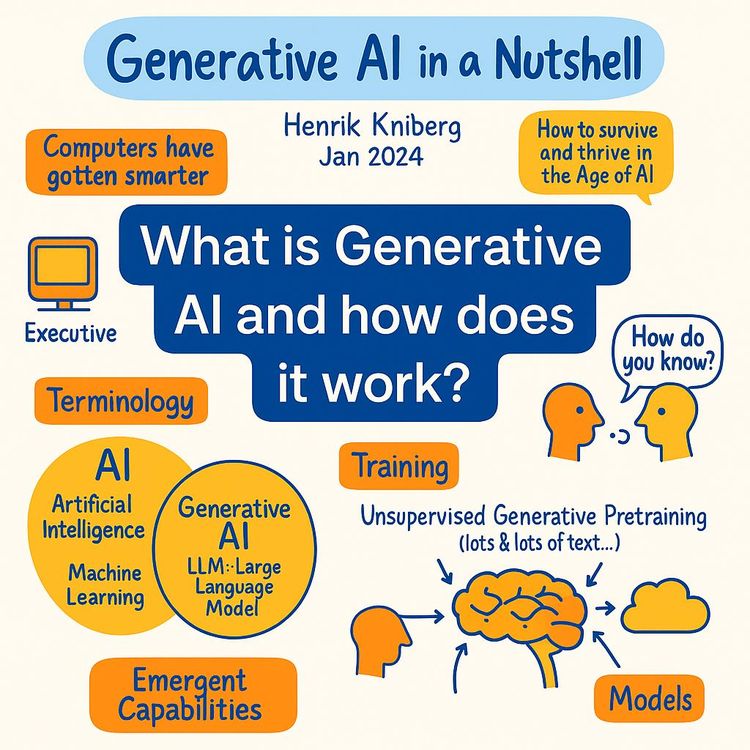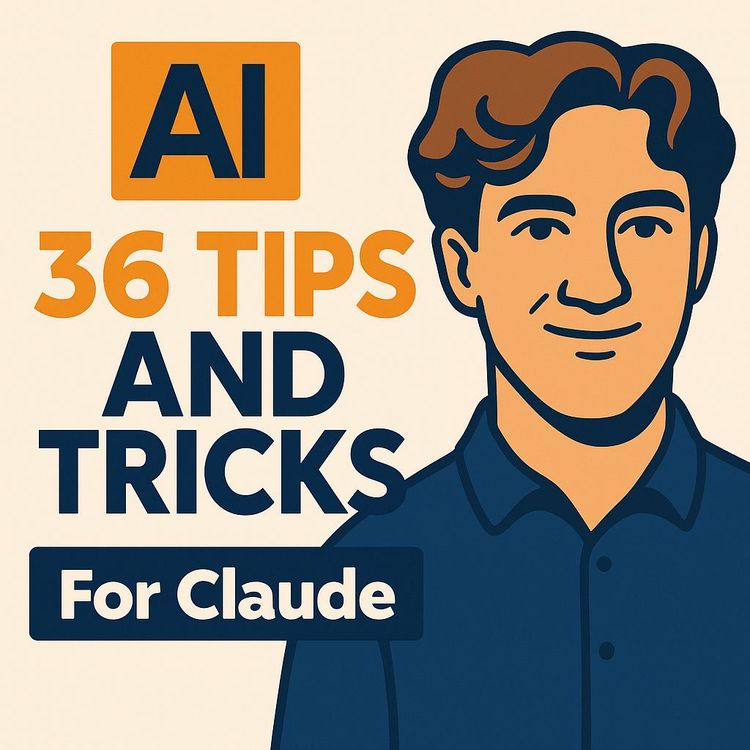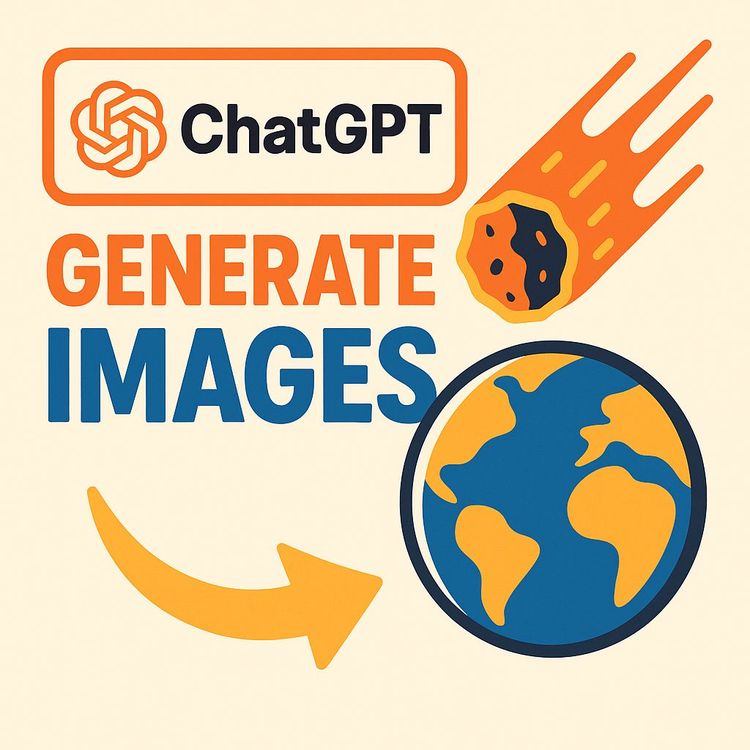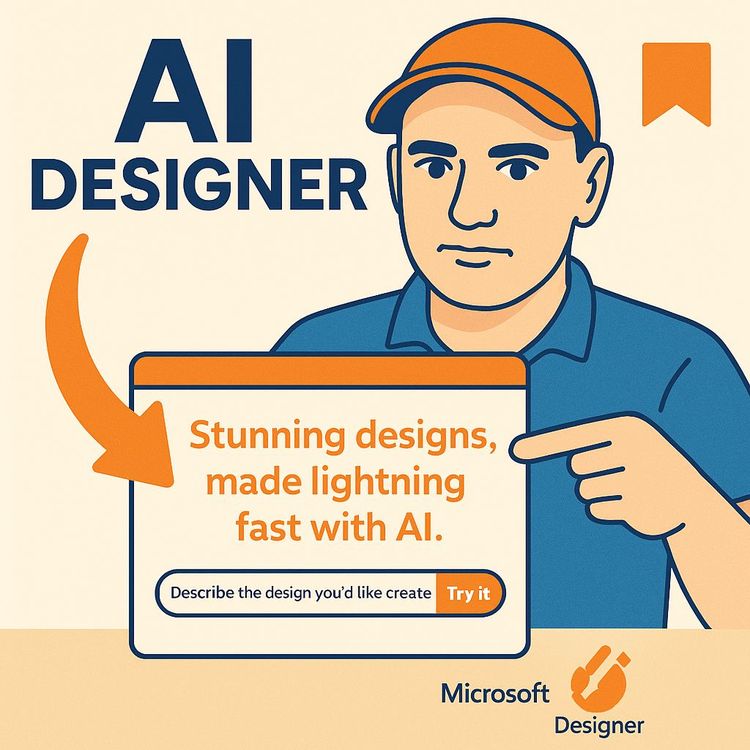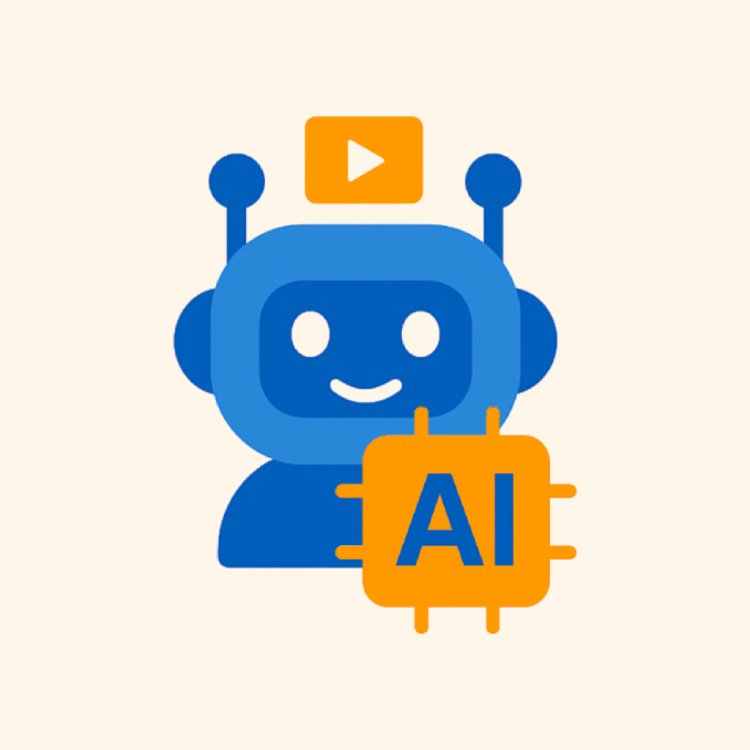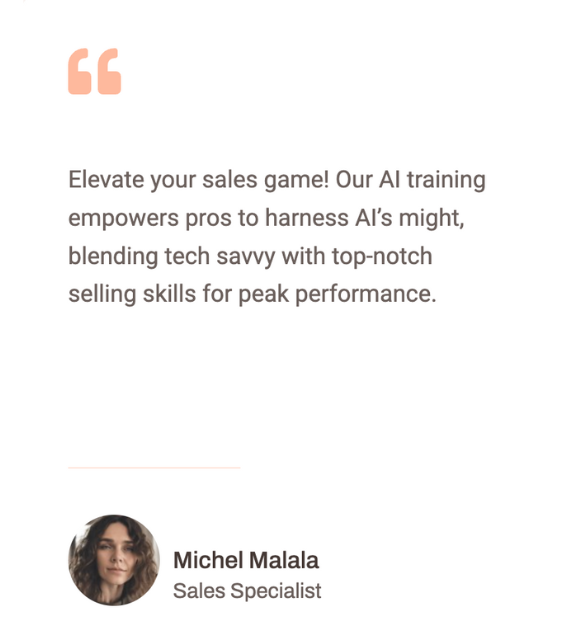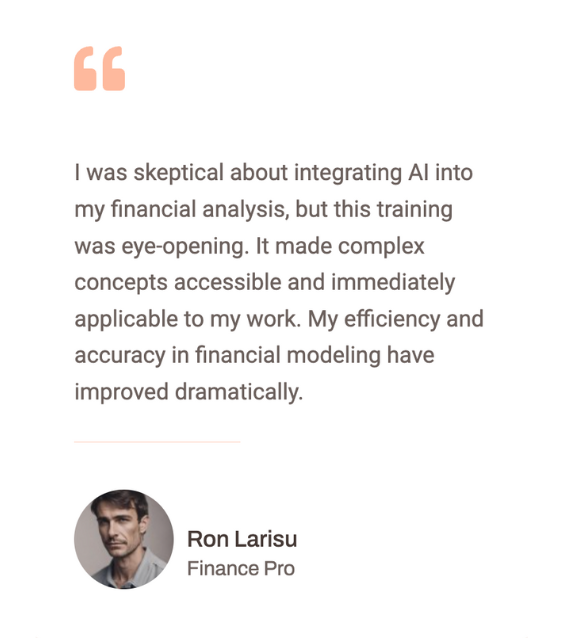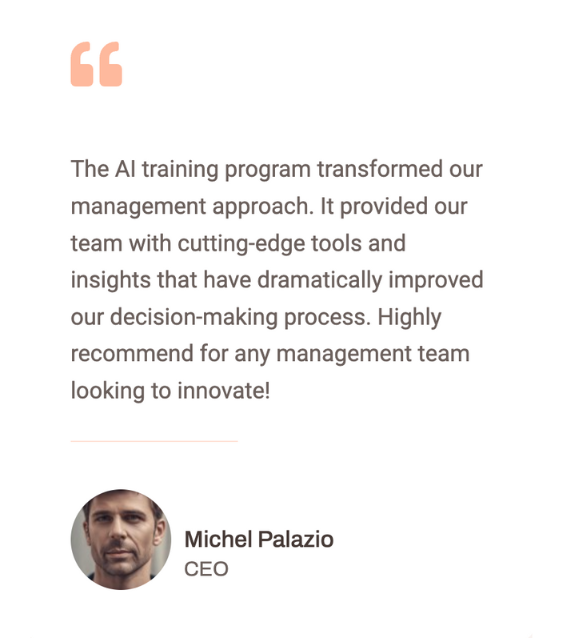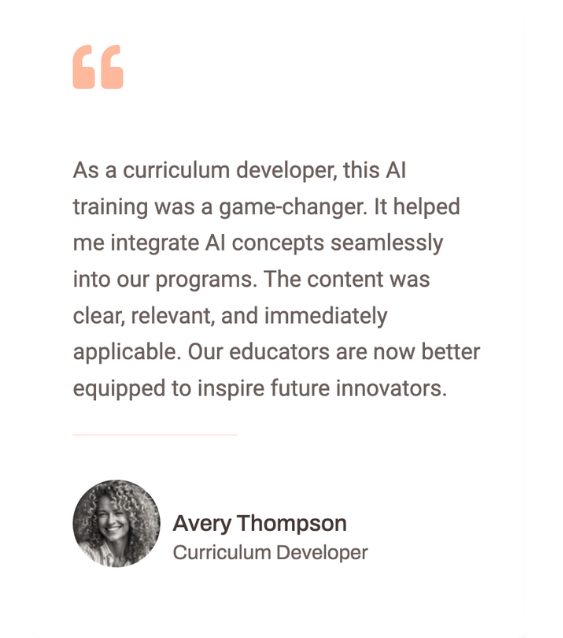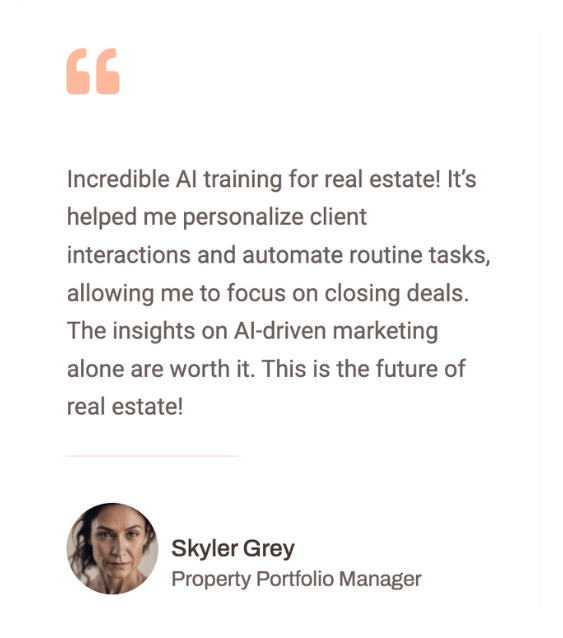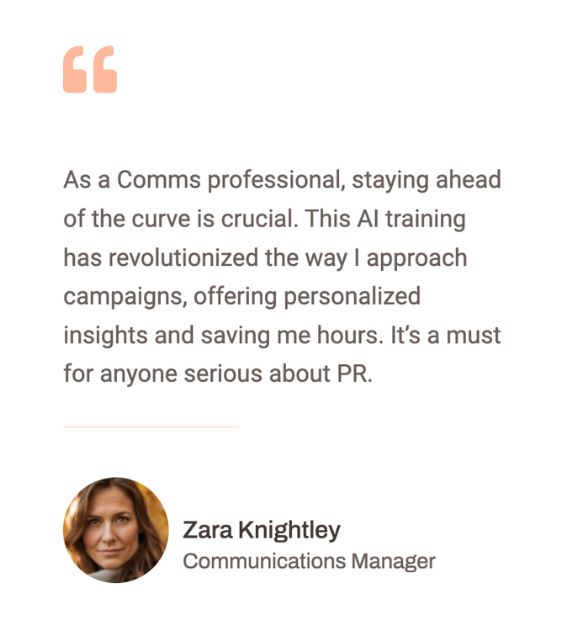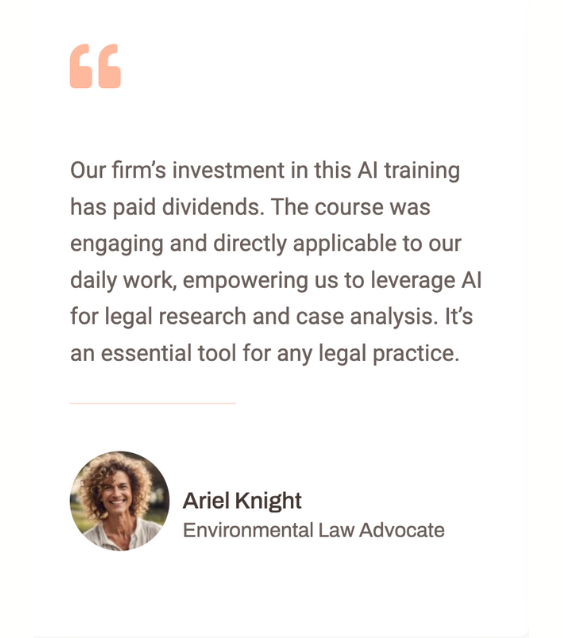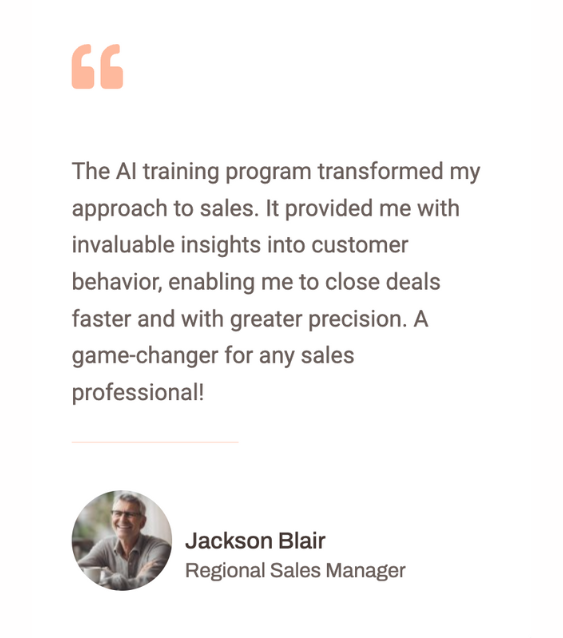AI Career Success: Practical Training, Real Projects & Agentic AI Skills (Video Course)
Transform your interest in AI into real career momentum. Learn how to build practical skills, create an impactful portfolio, and leverage community connections,guided by real industry stories and actionable strategies from Africa Data School.
Related Certification: Certification in Applying AI Skills for Industry Solutions and Agentic AI Implementation
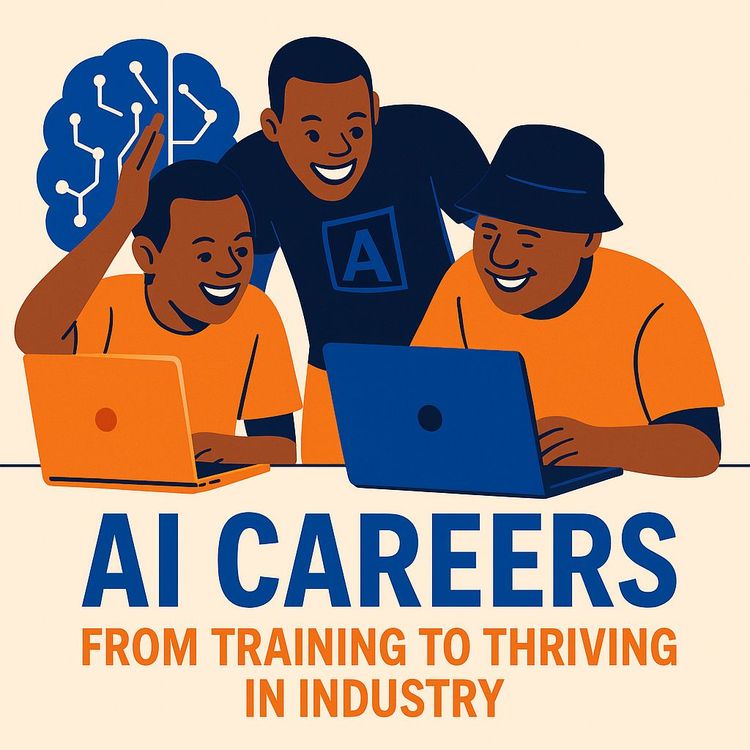
Also includes Access to All:
What You Will Learn
- Build end-to-end data pipelines: acquire, clean, and document data
- Analyze and visualize data using Python and Jupyter
- Develop and interpret predictive models
- Create project-based portfolio pieces for hiring
- Apply agentic AI concepts to orchestrate workflows
- Network, present work, and transition to consulting or startups
Study Guide
Introduction: Why AI Careers, Why Now?
Artificial Intelligence isn’t just a buzzword; it’s a dynamic arena that’s changing how we work, live, and even think. The journey from classroom curiosity to thriving in the AI industry feels overwhelming for many. This course unpacks that journey in detail, using real stories, industry lessons, and hands-on strategies. You’ll learn how foundational training builds credible careers, why practical skills matter more than theory alone, and how new trends like agentic AI are opening doors for problem solvers and innovators. Whether you’re a student, a professional pivoting into tech, or an entrepreneur eyeing the next big opportunity, this guide equips you with the knowledge, mindset, and tools to move from learning to leading in the AI space.
The Starting Point: Building a Strong Foundation in Data Science
Every AI journey begins with a problem that traditional approaches couldn’t solve. Jacques Khisa, for example, started as a computer science undergraduate. His final year project aimed to predict customer behavior using basic models, but he hit a wall: lack of practical skills in data science. This frustration became his launchpad.
The lesson here is universal: a solid foundation in data science is not optional. It’s the bedrock for any serious career in AI. This means understanding not just how to code, but how to find, prepare, and interrogate data. Without this, even the most creative ideas remain unfulfilled.
Example 1: An accounting graduate who wants to use company data to influence management decisions often discovers that knowing Excel isn’t enough. They need to visualize patterns, spot anomalies, and build predictive models.
Example 2: A marketing analyst, faced with mountains of customer data, can’t find actionable insights until they learn how to clean and structure that data using Python and visualization tools.
Best Practice: If you’re coming from another field, set a tangible goal for your learning. For instance, “I want to visualize sales data to help my team make better decisions.” This keeps your learning focused and relevant.
From Theory to Practice: What Data Science Training Should Look Like
Africa Data School (ADS) exemplifies what good data science education means. Their curriculum is designed for beginners, covering the entire pipeline: programming, data acquisition, cleaning, analysis, and prediction. Real-world projects, not just lectures, make the skills stick.
Jacques’s own training at ADS closed the gap between theory and practice. He learned:
- How to acquire data from diverse sources (APIs, databases, CSVs, etc.)
- How to assess data quality (volume, velocity, variety, veracity, and value)
- How to clean and prepare data for meaningful analysis
- How to use tools like Jupyter Notebooks to document and share findings
- How to build predictive models and interpret their results
Example 1: Students at ADS build dashboards to visualize company sales or user engagement, giving them something tangible to show potential employers or use in their own work.
Example 2: Jacques’s cohort had to predict customer behavior, which meant understanding not just algorithms, but where to find reliable data and how to handle missing or inconsistent entries.
Best Practice: Prioritize programs with hands-on projects. A portfolio of real work is more valuable than certificates.
Data Acquisition and Quality: The Hidden Backbone of AI
The most overlooked, yet foundational, skill in AI is data acquisition. Jacques’s teaching at ADS emphasized that before you can build anything, you need quality data.
He drilled students on:
- Understanding data sources: Is the data public, proprietary, or require scraping?
- Evaluating data characteristics: Volume (how much?), velocity (how fast?), and variety (how many types?).
- Assessing data quality: Is the data accurate, complete, and relevant?
- Documenting the data pipeline: How does data move from source to model?
Example 1: A startup tries to build a recommendation engine but keeps getting poor results. The issue isn’t the algorithm,it’s that their customer data is full of duplicates and missing values.
Example 2: An NGO analyzing social media sentiment finds that their results are skewed because the data sample is too small or biased towards a certain demographic.
Tips:
- Always audit your data before starting analysis. Garbage in, garbage out.
- Automate data cleaning where possible, but never trust automation blindly. Manual checks are essential.
Career Progression in AI: From Student to Engineer to Entrepreneur
Jacques’s journey illustrates that an AI career isn’t linear,it’s a process of continuous learning, adapting, and seizing new opportunities. Here’s how his path unfolded:
- Data Science Student: Motivated by an unfinished project, Jacques joined Africa Data School to master the skills he lacked.
- Tutor at ADS: He became a teaching assistant, deepening his understanding by helping others and focusing on the practicalities of data acquisition and quality.
- Workshop Participant: Attending events, especially an Nvidia and ADS workshop, he showcased his skills and met industry professionals.
- AI Consultant: He landed contract roles at Huri AI and Digital Equity Association through connections made at these workshops.
- CTO (Chief Technology Officer): After his contract, he became CTO at Digital Equity Analytics, focusing on building products that leveraged AI for sentiment analysis and political monitoring.
- Startup CEO: Identifying a gap in travel industry operations, he co-founded Voyage Companion, using AI to streamline workflows for travel professionals.
Example 1: Jacques’s transition from tutoring to consultancy happened not through applications, but by being visible at events and demonstrating value in real time.
Example 2: His move into entrepreneurship was sparked by direct exposure to industry inefficiencies,he saw how AI could automate tasks for tour operators and hotels, and built a business around that insight.
Tips for Progression:
- Don’t wait for perfect readiness. Teaching, volunteering, or participating in workshops accelerates learning and exposes you to real opportunities.
- Stay curious and flexible. The AI field evolves fast. Be prepared to pivot as new technologies and needs emerge.
The Power of Networking and Community Engagement
AI is not a solo sport. Networking, community participation, and being visible at industry events open doors that qualifications alone cannot.
Jacques’s first AI roles came not from job boards, but from connections made at workshops. These interactions surfaced hidden opportunities and put him on the radar of people seeking talent.
Example 1: At an Nvidia-Africa Data School workshop, attendees noticed Jacques’s skillset and approached him directly about consultancy roles in their companies.
Example 2: By participating in panel discussions and mentoring, Jacques built a reputation, leading to leadership roles like CTO at Digital Equity Analytics.
Best Practices:
- Attend meetups, webinars, and hackathons,even virtually. These are where projects and job leads are born.
- Share your work publicly, whether it’s a simple data visualization or a full project on GitHub or LinkedIn. Visibility attracts opportunities.
Industry Gaps and Entrepreneurial Opportunities: Seeing What Others Miss
AI careers don’t end with employment. The most exciting opportunities come from identifying industry gaps,problems begging for solutions that current technology or services don’t address.
Jacques noticed that, despite the hype, many businesses,especially in travel,weren’t leveraging AI to deliver impactful results. He saw inefficiencies in itinerary management and poor operational insights among tour operators and hotels.
Example 1: Voyage Companion’s core offering automates complex workflows for travel professionals, such as booking management, payments, and customer follow-ups, freeing staff to focus on high-value tasks.
Example 2: Digital Equity Analytics built sentiment analysis tools for election monitoring, helping organizations like IABC and clients in Nigeria understand public opinion in real time.
Tip: If you’re looking for a business idea, start with what frustrates you or your colleagues. The best AI startups often emerge from “why isn’t this easier?” moments.
Understanding the Evolving AI Landscape: From Predictive Analytics to Agentic AI
AI isn’t what it was just a few years ago. Jacques’s journey tracks the field’s evolution from basic models to today’s complex, orchestrated systems.
Initially, much of AI focused on predictive analytics,using historical data to make forecasts. Then came generative AI, which could create new content (text, images, music) at scale. With the advent of transformer models (a breakthrough architecture for machine learning), chatbots and large language models became mainstream.
Now, the frontier is agentic AI. Unlike traditional chatbots that answer questions within narrow boundaries, agentic AI orchestrates multiple processes and agents. It merges enterprise data, business logic, and real-world workflows to automate and optimize complex tasks.
Example 1: A betting company uses agentic AI to combine several chatbots, each handling a different function (odds checking, account management, customer support), all coordinated towards a common business goal.
Example 2: In travel, agentic AI integrates itinerary planning, booking, payment, and customer notifications into a seamless, automated workflow,no more siloed systems.
Tips for Staying Relevant:
- Follow industry trends and experiment early with new technologies. Don’t get stuck in one era of AI.
- Learn the principles behind breakthroughs like transformer models and agent orchestration, not just the tools. This gives you flexibility as the landscape shifts.
Agentic AI: The Next Stage of Automation and Integration
Agentic AI is more than a buzzword,it’s a leap in how AI systems are designed and deployed in real business settings. Jacques views it as the future of large language models in production.
Traditional chatbots are limited. They answer questions, pull from a database, and stay within tight boundaries. Agentic AI, by contrast, orchestrates multiple agents to manage end-to-end workflows. It combines text and image generation, taps into enterprise data, and executes actions,reducing manual effort and creating integrated user experiences.
Example 1: An e-commerce company deploys an agentic AI system that not only answers customer queries but also processes returns, updates inventory, and triggers refunds,without human intervention.
Example 2: A healthcare provider uses agentic AI to coordinate appointment scheduling, insurance verification, and follow-up reminders in a unified process, improving efficiency and patient satisfaction.
Best Practice: If you’re building or adopting AI solutions, look for opportunities to combine multiple functions and data sources, not just automate single tasks.
Distinguishing Roles: Data Engineering vs. Data Analysis
Understanding the data pipeline is crucial. Data engineering and data analysis are distinct, but deeply complementary.
Data Engineering: Builds and maintains the infrastructure for data acquisition, storage, and preparation. Data engineers ensure that clean, reliable data is available for downstream tasks.
Data Analysis: Consumes and interprets the data. Data analysts pose business questions, run analyses, create visualizations, and generate actionable insights.
Example 1: A data engineer automates the extraction and cleaning of user activity logs from a mobile app, storing them in a data warehouse.
Example 2: A data analyst uses that cleaned data to identify usage patterns and recommend product changes to increase engagement.
Tip: Early in your career, learn enough about both fields to communicate across the pipeline. Specialize as you discover your strengths and interests.
The Practical Approach: How Africa Data School Bridges the Gap
Education that works in AI is practical, project-based, and continuously updated. Africa Data School’s approach covers the full spectrum, from zero programming experience to building predictive models.
Their program is designed for accessibility:
- Fully online delivery, allowing for flexibility and diverse participation
- Short, intensive modules,students gain skills quickly and can demonstrate results to employers
- Iterative curriculum development based on feedback and industry needs
- Focus on hands-on projects, not rote memorization
Example 1: Students start by learning Python basics, then progress to scraping data from the web, cleaning it, visualizing trends, and finally building predictive models.
Example 2: Real business projects,such as building dashboards for NGOs or analyzing political sentiment,give students experience that translates directly to employment or entrepreneurship.
Best Practice: Choose learning environments that emphasize real-world tasks, practical feedback, and community support.
Setting Learning Goals: The Secret to Efficient Upskilling
The most effective learners in AI are goal-driven. Jacques advises setting clear objectives for what you want to achieve with data science or AI training.
Don’t learn everything “just in case.” Anchor your studies in real business problems or personal ambitions.
Example 1: An accountant aiming to help management makes “visualize key financial metrics for weekly reporting” their first data science goal, focusing their learning on relevant tools and techniques.
Example 2: A product manager who wants to predict customer churn focuses on acquiring data, cleaning it, and building a simple classification model to identify at-risk users.
Tip: Write down your goal. Break it into small projects. Reflect on progress and update your goal as your skills evolve.
Project-Based Learning and the Importance of Portfolios
In AI and data science, your portfolio is your CV. Employers and clients want proof, not promises.
Africa Data School’s emphasis on project-based learning enables students to build portfolios that showcase abilities across the data pipeline.
Example 1: A student creates a public GitHub repository with Jupyter Notebooks demonstrating data cleaning, analysis, and predictive modeling on real datasets.
Example 2: Another develops an end-to-end project for a local business, analyzing customer feedback and presenting actionable recommendations, then documents the process and results online.
Best Practice: Prioritize quality over quantity. One well-explained, end-to-end project can be more persuasive than a dozen half-finished demos.
Overcoming Challenges: Skepticism, Data Limitations, and Regulation
AI adoption in business isn’t automatic. You’ll encounter skepticism, data limitations, and regulatory hurdles. Addressing these challenges directly is a key career skill.
Example 1: Many businesses are wary of AI because of perceived complexity or fear of job losses. Transparent communication and clear demonstrations of value are essential.
Example 2: In regulated sectors, such as finance or healthcare, strict data privacy laws require careful data handling and documentation.
Tips:
- Educate stakeholders on AI’s benefits and limitations. Use clear, jargon-free explanations.
- Prioritize data security and compliance from the start of every project.
- Document decision-making processes to build trust and facilitate audits.
Cost, Revenue, and Value: The Business Case for AI
AI’s impact is measured in business terms: cost reduction, revenue growth, and operational efficiency. Agentic AI, in particular, is valued for its ability to merge multiple use cases and orchestrate business processes.
Example 1: Voyage Companion’s automation platform helps travel companies reduce manual labor, cut costs, and boost customer satisfaction,leading to higher revenue.
Example 2: Digital Equity Analytics’ sentiment monitoring enables organizations to respond rapidly to public opinion, improving campaign effectiveness and resource allocation.
Tip: When pitching AI solutions, always tie features to business outcomes. Speak the language of cost, efficiency, and growth.
Case Study: Jacques Khisa’s Career Path in Detail
Let’s walk through the key phases of Jacques’s journey, using his experiences as a template for aspiring AI professionals.
- Undergraduate Project: Jacques’s initial struggle with a predictive model for customer behavior underscored the gap between academic theory and real-world requirements. The inability to acquire and process data motivated his pivot to data science.
- Data Science Training at ADS: At Africa Data School, he learned practical data handling and modeling skills, including data acquisition and cleaning, which he immediately applied as a teaching assistant.
- Networking and Opportunity: By participating in workshops, Jacques connected with industry professionals. This led to consultant roles at Huri AI (where he built a conversational AI for a betting company) and Digital Equity Association.
- Leadership and Product Development: As CTO at Digital Equity Analytics, he managed projects using sentiment analysis for election monitoring,real, high-impact applications of AI.
- Entrepreneurship and Innovation: Sensing a gap in the travel sector, Jacques co-founded Voyage Companion to automate and optimize workflows for tour operators, hotels, and destination management companies.
Key Learnings:
- Every transition was driven by a willingness to learn, visible participation in the community, and a focus on solving real problems.
- Each role built on the last: technical skills enabled teaching, teaching enabled networking, networking enabled consultancy and leadership, and leadership enabled entrepreneurship.
The Future: Continuous Learning and Staying Ahead
AI is a moving target. What’s cutting-edge today becomes standard tomorrow. The best careers are built on continuous learning, adaptability, and curiosity.
Example 1: Stay updated by following research papers, attending webinars, and experimenting with new frameworks and models,especially as agentic AI becomes more prevalent.
Example 2: Seek out mentorship, both as a mentee and mentor. Teaching others deepens your own understanding and expands your network.
Best Practice: Dedicate regular time each week to learning. Document your discoveries and share them with your community.
Conclusion: From Training to Thriving,Your Next Steps
The journey from learning AI to thriving in the field is accessible to anyone willing to invest in foundational skills, practical experience, and active engagement with the community. Jacques Khisa’s story, and the Africa Data School approach, provide a blueprint: start with the basics, get your hands dirty with real data, build a network, and never stop learning.
To recap:
- Begin with solid training in data science fundamentals, with a focus on practical projects.
- Develop expertise in data acquisition and quality,these skills underpin all successful AI work.
- Engage with the community. Workshops, meetups, and online events are gateways to opportunity.
- Identify real-world problems and use AI to solve them. This is where real value (and satisfying work) is found.
- Build a portfolio that demonstrates your abilities across the data pipeline.
- Embrace new trends like agentic AI,but understand the principles, not just the tools.
- Set and revisit clear learning goals. Let your curiosity and business needs guide your upskilling.
- Anticipate challenges,regulation, data limitations, skepticism,and prepare to address them head-on.
- Showcase the business impact of your work: cost savings, efficiency gains, and revenue growth.
- Keep learning. The field will never stop evolving, and neither should you.
In AI, thriving isn’t reserved for the “naturally gifted” or the “lucky.” It’s the outcome of deliberate action, relentless curiosity, and the courage to step into new opportunities. If you’re ready to move from training to thriving, the tools, community, and roadmap are all here. Take your next step.
Frequently Asked Questions
This FAQ section aims to bring clarity to every stage of an AI and data science career, especially as explored in the 'AI Careers: From Training to Thriving' webinar with Jacques Khisa and Africa Data School. Each question addresses the motivations, training experiences, real-world challenges, and practical steps for professionals interested in data-driven roles, whether you're considering a career shift, seeking hands-on advice, or looking to understand advanced concepts such as agentic AI and workflow automation. For business professionals and aspiring AI practitioners, this resource is designed to answer both foundational and nuanced questions to help you make informed decisions and thrive in the AI space.
What motivated the speaker, Jackie, to pursue a career in data science and AI?
The initial spark came from a challenging undergraduate project on predicting customer behaviour. Jackie struggled due to limited data skills, which revealed a growing demand for professionals who could extract actionable insights from abundant company data. This experience inspired him to seek further education and practical training in data science.
How did Africa Data School (ADS) contribute to Jackie's career trajectory, and what was his experience there?
ADS was instrumental in shaping Jackie's career. Unlike other schools offering broad IT programs, ADS specialized in data, which aligned with Jackie's ambitions. He enrolled, completed the program, and later became a tutor,emphasizing the importance of data quality and accessibility, two critical industry pain points. Networking at ADS workshops directly led to his first job opportunities.
How did Jackie secure his first job opportunities in AI?
Networking and exposure were key factors. Jackie's participation in an ADS workshop (in partnership with Nvidia) connected him with professionals who recognized the need for AI talent in their organizations. Although unpaid initially, this exposure and the relationships he built led directly to his first roles as an AI consultant and engineer.
What is agentic AI and why is it considered a significant development in the AI market according to the speaker?
Agentic AI orchestrates complex business processes rather than just answering questions. Unlike traditional chatbots limited to querying data, agentic AI automates multi-step workflows,such as email marketing or payment management,by combining data with business logic. This evolution enables businesses to streamline operations, cut costs, and unlock new value from their data.
What kind of businesses is Voyage Companion, Jackie's travel tech startup, targeting and what problems are they solving using AI?
Voyage Companion focuses on tour operators, bespoke hotels, and destination management companies. The startup addresses issues like poor operational insights and inefficient itinerary management. By automating processes like payments and customer follow-ups through agentic workflows and chatbots, they significantly speed up itinerary production and improve service quality.
How has the curriculum at Africa Data School evolved since Jackie's time as a student and instructor?
The curriculum has been refined and shortened to fit beginners’ needs. Now an 8-week fully online course (down from 12), the program emphasizes hands-on learning with weekly assignments. Classes are held in the evenings, making it accessible for working professionals. Continuous iteration ensures content remains practical and relevant.
What is the difference between a data engineer and a data analyst, and how does the Africa Data School course prepare students for these roles?
Data engineers handle the infrastructure and preparation of data, while data analysts extract insights and create reports from that data. The Africa Data School course covers the full data pipeline,from programming fundamentals to data cleaning, analysis, and visualization,preparing students for analyst roles and providing a strong foundation in engineering concepts.
What advice is given to individuals starting their data science journey, particularly those with a background in accounting?
Set clear, specific goals and focus on the business problems you want to solve. For example, an accountant might aim to improve data visualization for management reporting. Leverage transferable skills, use tools like Jupyter notebooks for analysis, and collaborate with domain experts to understand business context.
Why is data acquisition and quality emphasized as critical in data science careers?
High-quality, well-acquired data is the foundation of effective AI and analytics solutions. Without reliable data, models and insights will be flawed. In practice, much time is spent on gathering, cleaning, and organizing data before building models,making this phase essential for success in real-world projects.
How did Jacques Khisa secure his first AI consultant positions with Huri AI and Digital Equity Association?
He was approached by industry professionals after demonstrating his skills at a workshop. Participation in high-visibility events and practical demonstrations of expertise can open doors, as companies often look for talent with both technical expertise and real-world problem-solving ability.
What was the specific project Jacques Khisa worked on during his contractual job at Huri AI?
He developed a conversational AI experience for the Huri metaverse, combining multiple chatbots to achieve a shared goal. A notable example included creating a solution for a betting company, where chatbots worked together to enhance user engagement and streamline interactions.
What role did Jacques Khisa transition into after his contract ended at Huri AI, and for which organization?
After Huri AI, Jacques became the Chief Technology Officer (CTO) for Digital Equity Analytics. This position enabled him to lead technical strategy and development, further expanding his experience in AI and analytics-driven projects.
Describe one project Digital Equity Analytics undertook while Jacques Khisa was CTO.
The team built sentiment analysis monitoring systems for organizations like IABC and a similar project for Nigeria. These systems analyzed public sentiment on platforms such as Twitter and Facebook, providing actionable insights for political and social campaigns.
What gap in the industry did Jacques Khisa identify that led him to co-found Voyage Companion?
He recognized a lack of impactful AI solutions tailored for the travel industry's operational and service needs. Many travel businesses struggled to leverage AI for real, business-improving outcomes,prompting him to develop products that address these unique pain points.
What is one of the common pain points for the ideal customer profiles (tour operators, bespoke hotels, destination management companies) that Voyage Companion addresses?
Poor operational insights and inefficient itinerary management were widespread issues. Voyage Companion automates tasks like payments and customer communications, enabling faster and more accurate itinerary production for travel professionals.
How does agentic AI differ from traditional chatbots according to Jacques Khisa?
Traditional chatbots are limited to answering predefined questions, while agentic AI can orchestrate and automate multi-step workflows. Agentic AI merges enterprise data with business logic, allowing it to perform complex tasks such as handling bookings, payments, and follow-ups within a single system.
Why does Jacques Khisa believe agentic AI represents the future of large language models being put into production?
Agentic AI combines various AI capabilities to automate end-to-end business processes, not just isolated tasks. This integration makes business operations more efficient, reduces costs, and unlocks new possibilities for automation,pushing large language models beyond simple chat or content generation.
How did Jacques Khisa's career evolve from undergraduate studies to co-founding Voyage Companion?
He moved from an initial interest in computer science to hands-on data science work, gaining practical experience through education, teaching, and consulting. Key roles included student and tutor at Africa Data School, AI consultant for Huri AI, CTO at Digital Equity Analytics, and finally co-founder of Voyage Companion. Each step built on practical challenges, industry needs, and a drive to apply AI to real business problems.
Why is collaborating with domain experts important in data science and AI projects?
Domain experts provide essential context and understanding of the business problem, ensuring that AI solutions are relevant and impactful. Their insights help data professionals interpret results correctly and design models that solve real-world challenges. For example, an accountant can clarify which financial metrics matter most, guiding the data scientist to focus on the right data and outcomes.
What are some practical applications of agentic AI in business?
Agentic AI can automate workflows like customer onboarding, invoice processing, marketing campaigns, and support ticket resolution. For example, in travel, it can manage itinerary changes, automate follow-ups, and process payments, allowing staff to focus on higher-value tasks and improving customer satisfaction.
How do institutions like Africa Data School and industry workshops help bridge the AI and data science skills gap?
They offer hands-on, practical training and critical networking opportunities. Through real-world assignments, industry partnerships, and workshops, participants gain both technical skills and exposure to potential employers. This approach helps build confidence and competence, making graduates sought after by businesses needing data expertise.
What are some common challenges businesses face when implementing AI solutions?
Data limitations, skepticism, regulatory concerns, and integration with existing systems are frequent obstacles. For instance, poor data quality can derail projects, while unclear regulations may slow adoption. Overcoming these challenges requires clear communication, stakeholder buy-in, and iterative development to demonstrate value early.
How can AI professionals address skepticism about AI adoption in organizations?
Focus on small, measurable wins and clear business outcomes. Demonstrating how AI can automate repetitive tasks, reduce costs, or improve accuracy,such as automating invoice processing or generating accurate sales forecasts,helps build trust and shows the tangible value of AI initiatives.
What are best practices for preparing data for analysis or AI model building?
Begin with thorough data cleaning: handle missing values, remove duplicates, and ensure consistency. Understand the source and context of data, and document each transformation step. Use automated tools where possible, but always validate results manually. For example, in finance, verifying data against known totals helps catch errors early.
What are typical career paths for someone trained in AI and data science?
Common roles include data analyst, data engineer, machine learning engineer, AI product manager, and business intelligence specialist. Many professionals also transition into consulting or startup leadership, especially as they gain experience identifying business needs and developing practical AI solutions.
Can you provide examples of AI solving real business problems?
In retail, AI-driven demand forecasting helps optimize inventory, reducing waste and stockouts. In healthcare, predictive analytics support early disease detection. In travel, automated itinerary generation and customer follow-up streamline operations and enhance customer experience, as seen with Voyage Companion.
What are common misconceptions about AI and data science roles?
Many believe that AI roles are purely technical or require a PhD, but business understanding and communication are equally important. Another misconception is that AI instantly delivers results. In practice, projects require careful planning, data preparation, and ongoing iteration to achieve value.
What tools and technologies are commonly used in AI and data science careers?
Popular tools include Python, Jupyter notebooks, SQL, and visualization libraries like Matplotlib and Tableau. For machine learning, frameworks such as TensorFlow, PyTorch, and scikit-learn are widely used. Cloud platforms (AWS, Google Cloud) and workflow tools like Apache Airflow or DBT also play important roles in real projects.
How does generative AI differ from traditional AI models?
Generative AI creates new content (text, images, etc.), while traditional AI models are designed for prediction or classification. For example, a generative AI might draft marketing emails or produce itinerary suggestions, whereas a classic model predicts customer churn or classifies sentiment.
Is programming knowledge necessary for a career in AI or data science?
Basic programming skills are essential, even for business professionals aiming to work closely with AI teams. Python is the industry standard due to its readability and library support. Understanding programming enhances your ability to manipulate data, prototype solutions, and communicate with technical colleagues.
What advice do you have for professionals transitioning into AI from other fields (e.g., accounting, marketing)?
Leverage your domain expertise and focus on practical business problems that AI can solve in your area. Start with foundational courses, practice with real datasets, and apply your knowledge to relevant use cases,like automating reporting for accountants or customer segmentation for marketers.
How do businesses measure the success of an AI implementation?
Success is typically measured by improvements in key metrics like cost savings, revenue growth, accuracy, or process efficiency. Setting clear, quantifiable goals,such as reducing response time by a certain percentage or increasing customer retention,helps track progress and demonstrate value.
What ethical considerations should be kept in mind when implementing AI solutions?
Ensure fairness, transparency, and accountability in model development and deployment. Avoid bias in training data, respect user privacy, and provide clear explanations for AI-driven decisions. For example, when automating credit scoring, regularly audit the model to prevent discriminatory outcomes.
How can AI professionals stay current with trends and advancements in the field?
Follow reputable industry blogs, attend webinars and workshops, and participate in online communities. Engaging with open-source projects, reading recent research papers, and networking with peers also help maintain up-to-date skills and awareness of best practices.
What are some common pitfalls to avoid in AI projects?
Overestimating the readiness of data, under-communicating with stakeholders, and neglecting to validate models in real-world conditions are frequent mistakes. Always start with data assessment, involve business users early, and pilot solutions before scaling up. For example, a model that works in test environments may fail if real data is more diverse or noisy.
How should businesses approach integrating AI into their existing operations?
Begin with a focused pilot project tied to a specific business outcome. Build cross-functional teams that include both technical and business stakeholders, and plan for continuous iteration. For instance, start by automating a repetitive data entry task, measure results, and expand based on feedback.
What resources are recommended for learning AI and data science skills?
Online courses (such as those from Africa Data School), hands-on tutorials, and interactive platforms like Kaggle are excellent starting points. Supplement with books, podcasts, and meetups to gain both theoretical knowledge and practical experience. Real-world projects and competitions further cement learning.
How is AI transforming the travel industry specifically?
AI streamlines itinerary creation, automates customer communication, and optimizes pricing and resource allocation. For example, Voyage Companion uses AI to automate itinerary production and follow-ups, enabling travel professionals to provide faster, more personalized service to clients.
How do AI professionals address data privacy concerns?
Implement strict access controls, anonymize sensitive data, and comply with relevant regulations such as GDPR. Transparency with customers about data usage and regular audits are essential. For instance, when analyzing customer data, only aggregate, non-identifiable information should be used for model training.
What are the future career opportunities in AI and data science?
Opportunities continue to expand across industries like finance, healthcare, travel, and logistics. Emerging roles include AI ethicist, AI product manager, and specialized consultants for workflow automation or industry-specific AI applications. Staying adaptable and continually learning is key as technology and business needs evolve.
Can you share success stories of professionals who transitioned into AI and data science?
Many have moved from backgrounds in accounting, marketing, or engineering into impactful roles after targeted upskilling. For example, an accountant who learned Python and visualization tools was able to automate monthly reporting,freeing up time for strategic analysis. Participation in workshops and practical courses often accelerates these transitions.
How can business professionals effectively collaborate with AI teams?
Clearly define business objectives, provide context for the data, and maintain open communication throughout the project. Sharing knowledge of business constraints and success metrics ensures solutions align with organizational goals. Regular check-ins and feedback loops help address issues early.
What qualities make someone successful in an AI or data science career?
Curiosity, problem-solving ability, and strong communication skills are just as important as technical expertise. The willingness to learn, adapt, and work collaboratively with cross-functional teams contributes to ongoing success. Professionals who proactively seek feedback and iterate on their work deliver the most value.
Certification
About the Certification
Become certified in AI Career Success and showcase proven skills in building AI solutions, developing impactful portfolios, leveraging industry connections, and applying agentic AI strategies to drive measurable results in real-world projects.
Official Certification
Upon successful completion of the "Certification in Applying AI Skills for Industry Solutions and Agentic AI Implementation", you will receive a verifiable digital certificate. This certificate demonstrates your expertise in the subject matter covered in this course.
Benefits of Certification
- Enhance your professional credibility and stand out in the job market.
- Validate your skills and knowledge in cutting-edge AI technologies.
- Unlock new career opportunities in the rapidly growing AI field.
- Share your achievement on your resume, LinkedIn, and other professional platforms.
How to complete your certification successfully?
To earn your certification, you’ll need to complete all video lessons, study the guide carefully, and review the FAQ. After that, you’ll be prepared to pass the certification requirements.
Join 20,000+ Professionals, Using AI to transform their Careers
Join professionals who didn’t just adapt, they thrived. You can too, with AI training designed for your job.

